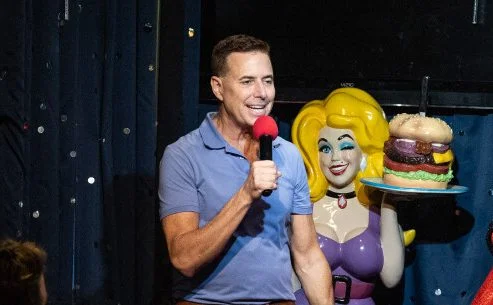
Is Florida’s Battle Against Drag Shows Losing Steam? Key Court Victories Unfold
In a series of landmark rulings, Florida's attempts to curb drag performances have faced significant setbacks, raising questions about the balance between public protection and constitutional rights. These decisions not only highlight ongoing tensions in the state but also underscore the broader implications for free speech and LGBTQ+ rights across the U.S.
The saga began with Hamburger Mary's, a beloved Orlando venue, challenging a 2023 Florida law aimed at restricting drag shows. As columnist Scott Maxwell noted, a federal court struck down the law, deeming it an infringement on free expression. John Paonessa, the owner, spoke emotionally on the last night of Drag Bingo in May 2024, marking the end of an era at their Church Street location before relocating due to the legal battle. This victory came after the 11th U.S. Circuit Court of Appeals upheld a preliminary injunction in a 2-1 decision, criticizing the law as "substantially overbroad." Judge Robin Rosenbaum's majority opinion emphasized that the legislation lacked the precision required by the First Amendment, essentially allowing vague interpretations that could stifle protected speech.

In dissent, Judge Gerald Tjoflat argued that the court should have sought clarification from the Florida Supreme Court, accusing the majority of overreaching. Despite this, the ruling affirmed that venues like Hamburger Mary's could continue hosting events without fear of arbitrary enforcement. This case ties into a larger wave of legislation under Governor Ron DeSantis, which has targeted transgender issues and performances, sparking national debate.
Parallel to this, Naples Pride celebrated a win in a separate federal case. A judge ruled that the city's restrictions on their Pride Fest drag show were unconstitutional, particularly criticizing exorbitant security fees that appeared discriminatory. Attorney and board member Callhan Soldavini hailed it as a "really big win," noting that the decision sets a precedent against governments silencing marginalized communities through financial barriers. The judge ordered negotiations on fees, which had spiked to over $44,000 for an outdoor event, potentially based on anticipated protests—a form of viewpoint discrimination.
These rulings reveal a pattern: Florida's laws, while positioned as child protection measures, are being challenged for their vagueness and potential to chill free expression. By comparing the two cases, it's clear that the "Protection of Children" bill's broad definitions of "lewd conduct" could inadvertently censor non-obscene performances, affecting not just drag shows but cultural events nationwide. As Soldavini pointed out, "This ruling makes clear that cities don't get to silence marginalized communities by pricing them out of public spaces."

In conclusion, these court victories signal a potential shift in Florida's restrictive policies, reaffirming the First Amendment's role in protecting diverse expressions. What does this mean for the future of drag culture and free speech? As debates continue, it's worth considering how these outcomes could influence similar laws elsewhere. We invite readers to share your thoughts in the comments below—do these rulings strike the right balance, or is more regulation needed?